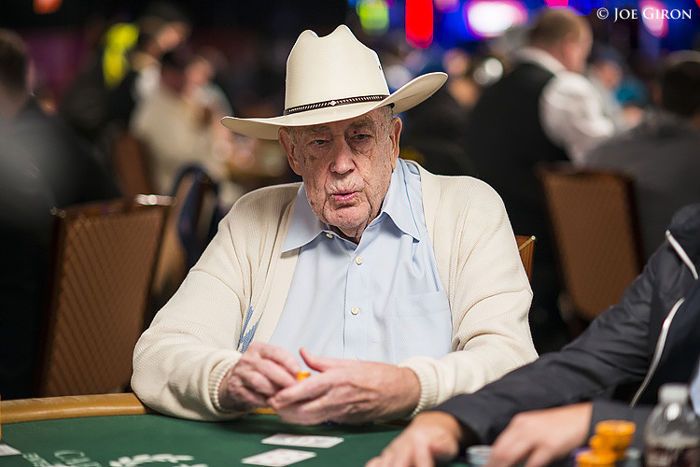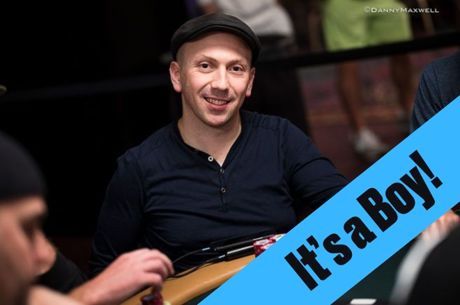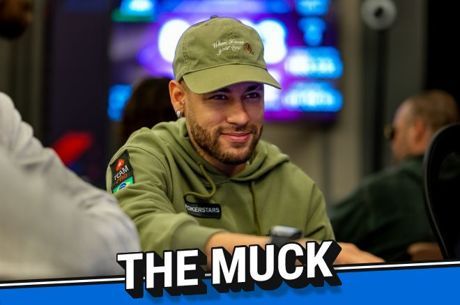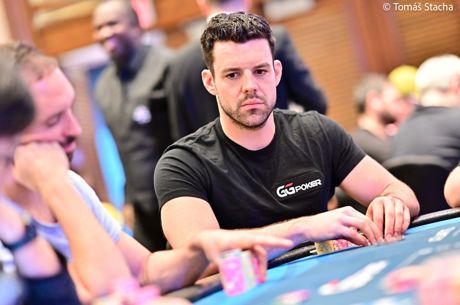Chasing Chips in the Lone Star State, Part II


The first part of this series focused on poker games flying under the radar in Texas.
From underground rooms and private games to border crossers looking for action, Texas has no shortage of players looking for a nice game, even risking legal entanglements. PokerNews now takes a look at the current trend of private membership poker clubs as a way to get around Texas gambling laws, the future of the game in the state and efforts at legalization.
MEMBERSHIP CLUBS
Corey W. Nation, executive director of the nonprofit group Poker In Texas, is hoping that one day that bleak outlook in Austin will change. The group’s mission ”is to establish favorable laws, policies and regulations that provide poker players with a secure, safe and regulated place to play.”
That goal is easier said than done. As Nation notes, “Under Texas law, any gambling operation where the host, ‘house,’ or any individual receives an economic benefit from the ‘gaming’ activity that is derived from anything other than the luck or skill of a player involved" is gambling.
"As pertaining to poker, this has been interpreted in the past and prosecuted (successfully) to include poker rooms and operations that take a ‘rake’ or percentage of the pot in play, as well as food/beverage service that accepts money for the food/beverages that had been in play on the table.”
Traditionally this has been interpreted to mean that any home game where there is no rake or collection by the host or house, is within the law, Nation said.
"This has been interpreted in the past and prosecuted (successfully) to include poker rooms and operations that take a ‘rake’ or percentage of the pot in play."
But once any money is removed from the table by the house, it becomes illegal, including food sales and collections for refreshments.
An additional burden for card rooms that attempted to skirt the law is the Texas Alcoholic Beverage Commission (TABC) rules prohibiting the sale of alcohol at any location where gambling is taking place. TABC has determined poker to be a form of gambling as opposed to a game of skill and strategy. This means that the game at a local bar cannot require a player to “buy in” or offer any value for an initial chance to win a prize (like a tournament).
With or without legislative approval there has been some movement in the state in recent years on offering a legal option for poker players. Clubs have opened in Austin, Houston, San Antonio and Tyler attempted to comply with the law by organizing as a private club.
Valarie Howard is the owner of Alamo Card House in San Antonio, which opened in May 2016. Alamo offers 3,500 square feet of space with nine tables. Like the other private clubs that have opened, the Alamo functions as a members-only club. No rake or tournament fee are taken. Tips are not allowed for dealers and alcohol is not allowed.
The club offers several membership levels for those wishing to simply play cash games or those looking for tournament action. An $8 per hour seat rental is also charged. Free bottled water, coffee and other snacks are offered to members. A catering service sells precooked food for rounders looking for a bite to eat.
On at least four nights a week, all of the Alamo’s tables are filled up and Howard says a 10th table will be added soon. Two armed security officers and and an alarm help to keep the game safe (something probably longed for by old school Texas road gamblers of yore) and the facility features eight flat screen TVs.
"We have our regulars who make a living grinding at Alamo Card House."
The general idea is that the poker club functions much like a country club, staying within the narrow parameters of Texas law. The club seems to be a hit with South Texas players and spreads $1/$2 Texas hold’em and $1/$3/$5 pot limit Omaha every single night as well as other games on occasion.
“The vibe is always great,” Howard said. “We have our regulars who make a living grinding at Alamo Card House. It's usually a very relaxed environment. We don't allow alcohol which makes things a lot easier."
So far, most clubs in Texas have avoided any real problems with law enforcement or government officials. A club recently opened in Tyler and was featured in the Tyler Morning Telegraph.
Club owners say that they spoke with lawyers, the county sheriff and the county commissioner about its intentions and were told the club fell within the law. So far, Howard's club has remained open without any legal issues.
“We have not had any problems with law enforcement,” she said. “Our plans are just to keep making our card house better by continuing to improve the inside, continuing to stay innovative with tournaments and different promotions. We definitely plan on hosting some major charity events in the future.”
Howard worries other clubs may be cutting corners that could potentially violate law and make things tough for other clubs.
“We have not had any problems with law enforcement."
Some things that might draw attention include offering free chips for those who show up early, offering additional add-ons before a designated break and serving or allowing alcohol, which might draw TABC violations.
“The legislation clearly states that all players must have an equal chance of winning,” she said. “Giving some players more chips than others puts you in jeopardy. Certain players cannot have an advantage over others. It all must be equal. I'm not sure what else goes on at other places, but we pride ourselves in doing it the right way."
Howard isn't worried about her club; she's worried about others who may stray from the law.
"We don't cut corners and seeing other card houses doing things like this worries me as an owner because this is new. We have to be doing it 100 percent to the tee. There is no room for error. If you're unsure about something, don't do it."
Howard will continue to follow the letter of the law and building the club's reputation for the sake of its members.
“We want to give a professional atmosphere to our members. Just like in any profession, customer service and customer satisfaction is always our main concern," she said. "We listen to our players and constantly try and meet their needs. I definitely love what we're doing and where we're going. Staying consistent with the rules of the game definitely builds trust with or members and that's definitely key.”
The Poker In Texas nonprofit has not taken an official position on the legality of membership-based card rooms like the Alamo, but Nation views it as “an innovative solution to a problem that has plagued Texas players for decades: how to find an honest and legitimate game in a safe location.”
"Staying consistent with the rules of the game definitely builds trust with or members and that's definitely key.”
Many Texans are frustrated that the state so synonymous with poker does not allow legal, safe poker rooms like those in Las Vegas or Atlantic City within its borders. One can only imagine the popularity of a World Poker Tour stop in Houston, a major event in Galveston (an historic city on the Texas coast which one housed many underground casinos) or a World Series of Poker/Texas Hold’em – in Texas.
Nation says one of the problems sometimes faced is the “crooked game” and operations that have a criminal element to keep the room profitable. A regulated poker environment in the state would help curtail some of these activities, he believes.
In November, Nation says his friend Carl (not his real name) was invited to a $5/$10 no limit hold’em game in north Houston with an average buy-in around $1,500-$2,000. Carl, an accomplished cash game player, was having a good night and was up $10,000 after five hours.
Having to work the next day, he cashed out at 1 a.m. The game was located in the storefront of a shopping center with a well-lit parking lot and parking was only a few yards from the door.
"The only way that these individuals could know the amount in question was if they were working with the people running the poker room."
“Before my friend got to his car, two masked men approached him with a gun and told him exactly how much money he had in his left pocket and demanded every dollar,” Nation said. “Fortunately my friend was wise enough to simply hand over the cash and not be a hero. But the only way that these individuals could know the amount in question was if they were working with the people running the poker room. To my knowledge, this room still operates regularly.”
No stranger to a poker room hijacking, as detailed in his autobiography, The Godfather of Poker, 10-time WSOP bracelet winner and native Texan Doyle Brunson believes fully-legalized casinos and card rooms would be a Texas-sized boon to the state economy and government coffers.

“I haven’t played in Texas in 20-plus years,” Brunson told PokerNews. “Legal poker in Texas would be a tremendous asset to the state – lots of revenue in taxes.”
THE FUTURE
Poker In Texas continues to lobby lawmakers to change state laws and recognize poker as a game of skill and not even as a house advantage game.
“Legal poker in Texas would be a tremendous asset to the state – lots of revenue in taxes.”
Another goal is the establishment of a poker/gaming commission or division within the lottery or racing commission and the formation of a taxation plan on revenue from poker operations.
Changing politicians’ minds to favor any kind gambling or casino legalization is very much an uphill climb. However, adding legalized gambling within the state is not without precedent.
Charity bingo has long been legal and voters approved legalized horse racing in a statewide election referendum in 1987 and simulcast wagering was legalized in 1991. Voters also approved a state lottery to help fund education in 1991.
Beyond that, however, there has not been much movement on other types of gambling and the prospects still seem dim in the short run.
“There is a real market demand in Texas for poker and venues to play and compete,” he said. “Just look at the parking lot in any Louisiana or Oklahoma casino within 50 miles of the Texas border; the license plates will be 80-90 percent Texas vehicles. We need to find a solution to the flood of economic activity that is fleeing our state because the laws do not reflect the markets that exist.”
Nation urged Lone Star players to contact their representatives in the Texas Legislature, which meets in Austin.
"We need to find a solution to the flood of economic activity that is fleeing our state because the laws do not reflect the markets that exist.”
Texas lawmakers only meet every two years, so every missed opportunity only further delays hopes of a legalized solution.
“We find ourselves in a unique position, with Texas facing an estimated $2 billion budget shortfall this session,” Nation said. “No serious representative will offhandedly dismiss the potential for bringing new jobs and new tax revenues to Texas, especially when it means that there will not need to be an increase in the taxation of the general public."
Thus, Texans need to band together to make this work.
"Legalized poker can offer a wide range of benefits to the state and local economies and to the individuals who are clamoring to play," he said. "Together we can make a difference; we just need to be willing to put forth the effort to let our voices be heard.”
No doubt, many players in the state are ready to go all in for a completely legalized game, but are stuck on the waiting list, a wait that could be many years to come.









